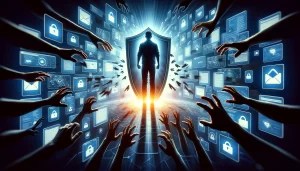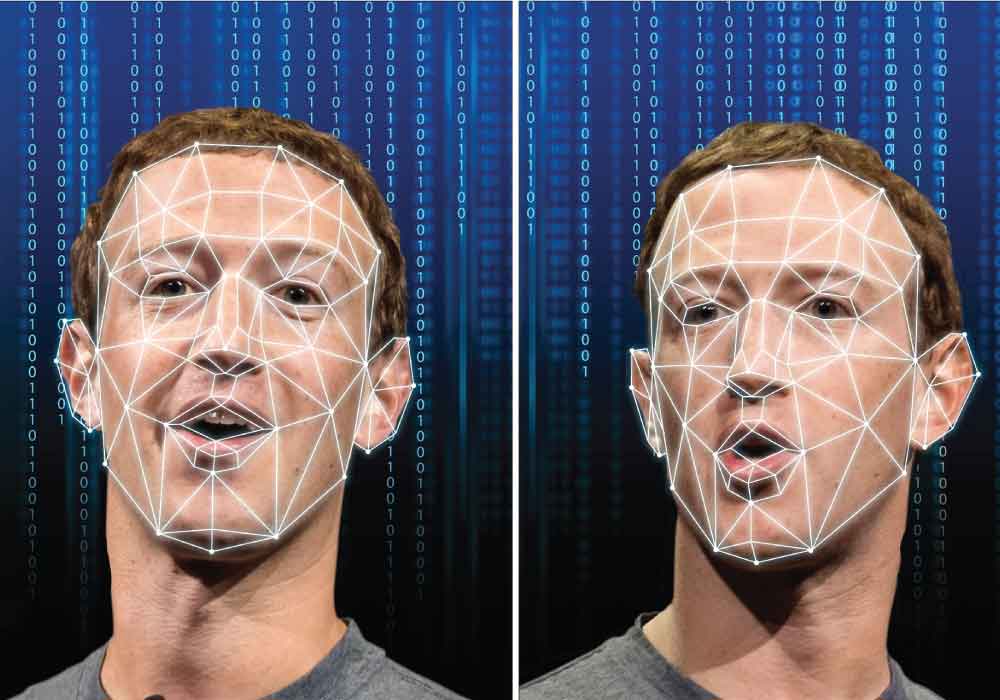
In April 2021 the Dutch Parliament video called with a staff member of Aleksej Navalny. Although, that was what the parliamentarians thought they did. Within a matter of time it turned out that the Parliament had been fooled. Now you might wonder; how could a professional organization such as the Dutch Parliament be so stupid? Well maybe they were not.
The scammers involved in the video call potentially applied a technique called deepfake. In non-nerd language, an AI edited video wherein the creator can change the actions or the spoken sentences. The resulting deepfake seemed extremely real. In fact so real that apparently even parliament members can be fooled.
When such new disruptive technology gets in the news for malicious reasons, the question often arises whether its advantages outweigh its disadvantages. Therefore, it should not be surprising that this question is a common topic of debate on deepfake technology. So do the advantages of deepfake actually outweigh its disadvantages?
Advantages of Deepfake
The most well known advantage of deepfake is its ability to aid the creation of funny videos. By swapping faces, anyone can let persons appear in unusual and sometimes comical situations. For example, you might have seen the video wherein the Russian president Vladimir Putin sings and claims that he is a weirdo. Further, a content creator that has become popular is deeptomcruise, who posts videos of himself deepfaked as Tom Cruise. However, deepfake’s applications are certainly not limited to entertainment.
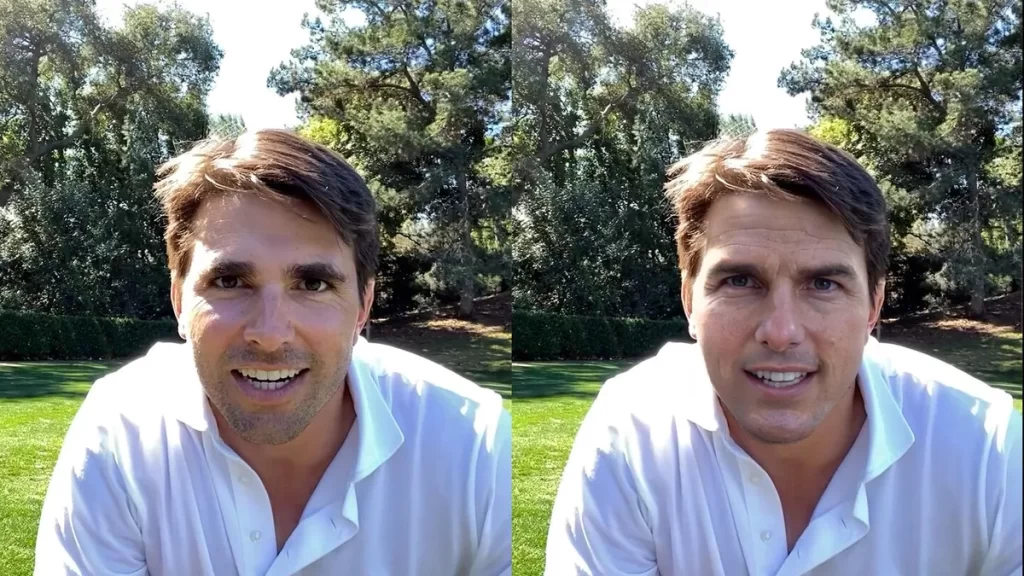
Helping ill and vulnerable people
An advantage of deepfake technology not well known to the public, is the technology’s potential for helping ill and vulnerable people. Although these applications are often thought experiments brought forward by the deepfake industry, they perfectly illustrate deepfake’s potential future advantages. For example, imagine the possibility of having a conversation with a deceased relative, whenever you need some consolation. Or, the ability to rejuvenate yourself to enhance conversations with Alzheimer’s patients, who are sometimes still able to recognize younger faces.

Other groups that might take advantage of deepfake technology are transgenders and amputees. Imagine that someone planning a gender operation could see her or himself on the desired body. This could lead to a more thorough and well considered choice regarding a life changing operation. On the other hand, amputees might want to re-experience a normal body to temporarily forget their disability or to aid trauma processing. Re-experiencing lost body parts is usually impossible, but potentially not in the world of deepfakes.
Education, research and accessibility of content
Another advantage of deepfake technology has to do with education and research. Deepfake’s ability to slightly adapt specific characteristics of the presenter, could influence the (perceived) quality of the educational content. One study suggests that the attractiveness of a teacher could be such a target of deepfake manipulation. Furthermore, one might imagine that a deepfake could be used to adapt existing educational content to the needs of specific populations, thereby enhancing accessibility of knowledge.

Regarding research, small changes to video content could enable (social) experiments under very well standardized conditions. Such experimental conditions have already been applied for research on the effects of teacher attractiveness on perceived lecture quality, and the effects of politicians’ spoken text on the support for their political parties.
Entertainment Industry
Another main advantage is the use of deepfakes in the entertainment industry and by content creator platforms. A large number of movies have used deepfakes to de-age actors or to portray a character originally played by an actor who has passed away. Deepfakes seem to have sparked the interest of large movie studios such as Disney. Lucasfilm, which is a subsidiary of Walt Disney Studios, even hired a content creator who used deepfake technology to improve the CGI (computer-generated imagery) originally used in the television show The Mandalorian. Moreover, Disney recently published a paper where they created an improved deepfake that could potentially be used. It becomes clear deepfakes open a whole new door for storytelling and entertainment. Especially low-budget movies and independent creators could benefit from deepfake technology, since deepfakes deliver remarkably good results while being cost-effective.
Marketing
Marketing companies have also started leveraging deepfakes. To illustrate, the company Just Eat launched an extremely successful commercial starring Snoop Dogg. However, in Australia, the subsidiary of the company is called Menu Log. Instead of re-shooting parts of the commercial in real life, deepfake technology was used to make Snoop Dogg say “Menu Log”, instead of “Just Eat”. Furthermore, during Diwali, Cadbury created an advertising campaign where a famous Bollywood actor, Shah Rukh Khan, would mention the store’s name. Since the same advertisement was used all over the country for hundreds of different businesses, deepfake technology was used for each store to make the actor say the different business name. Normally it would have been extremely inefficient to make the actor say hundreds of different business names. This is another example of how deepfakes can become extremely helpful for small businesses looking to create engaging advertisements, while on a budget.
Online shopping
A last advantage of deepfakes has to do with online shopping. One such application is a virtual try-on where customers are able to see how a clothing item would fit them. For example, the Fashion Innovation Agency already explored this idea where audience members during the London Fashion Week could see themselves wearing clothes from a designer brand. Thus, this technology could be adopted by online retailers, which would allow customers to create a better picture of how the clothing item would actually look when worn by them. Why would this be an intriguing technology for retailers? The answer is simple, if customers can make better decisions during online shopping, this can result in fewer items having to be returned by the customer, which in turn reduces the costs for the retailer.
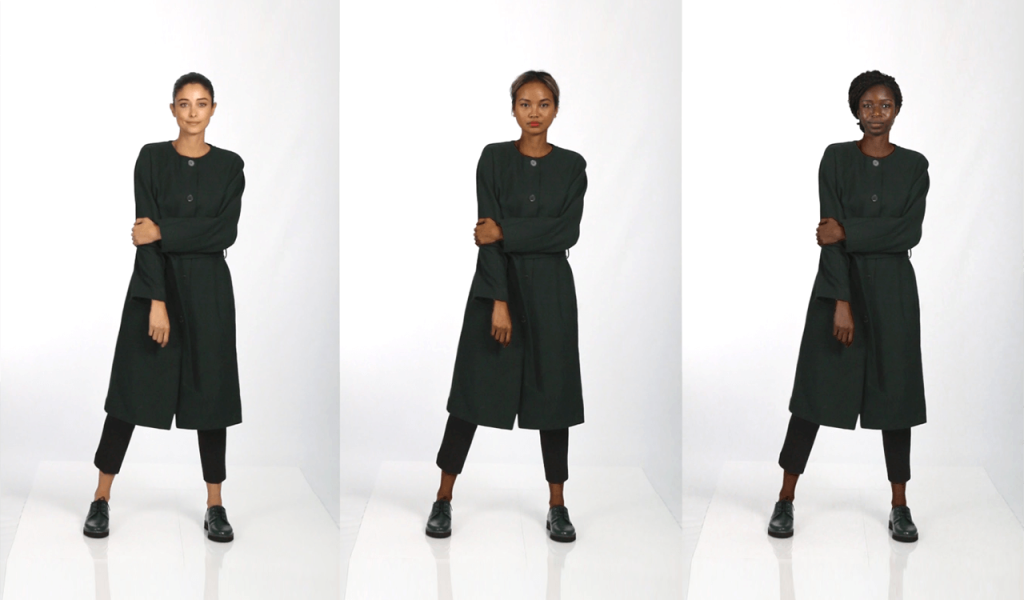
Disadvantages of deepfakes
Besides advantages, the use of deepfakes has certainly also disadvantages. Deepfakes have sometimes caused quite some controversy in the news, which has led to a large group of critics voicing their concern about deepfakes. The major criticisms are described below, and a case is given which illustrates that these criticisms are actually not that concerning.
Threat for democracy and society
Critics argue that deepfake technology can undermine democracy and society in general. An example of such undermining is a video of Zelensky reporting the surrender of Ukraine. However, one can question whether deepfakes can really influence democracy and society.
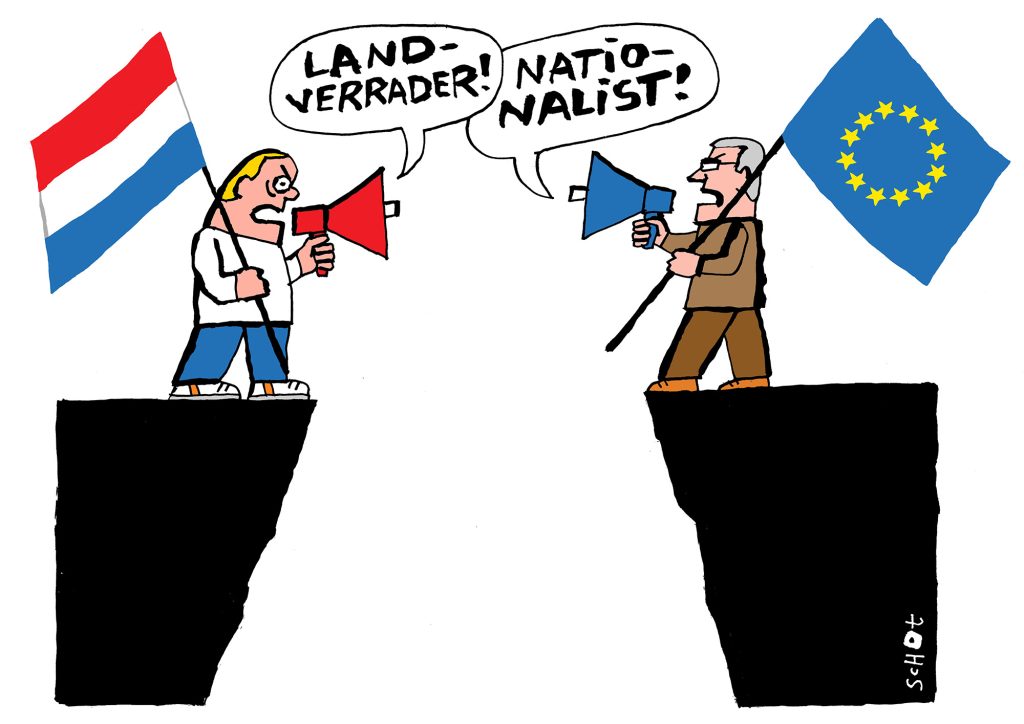
After all, experts state that deepfakes should be personalized to the target group. This so-called microtargeting is considered as a very difficult task, which is unlikely to be effective on a large scale. Even if microtargeting can be performed accurately it might still be ineffective to affect society. After all, people have a confirmation bias, whereby they try to confirm their point of view. Therefore, deepfakes might not lead to manipulation of society in general, but only to further polarization of already extreme groups.
Another important counterargument is that at the moment humans are able to recognize 70% of the deepfakes as fake. Although advancements in deepfakes could potentially decrease this percentage, deepfake detection technology will develop too. Additionally, while often provided as an argument against the use of deepfakes, increased cynicism due to deepfakes could actually make people more aware of content being fake. Thereby, potentially reducing the impact of deepfakes.
Harming Individuals
Another major concern voiced by critics is that deepfakes could be used to discredit individuals, for example by revenge pornography. deepfake technology has already been used for deepfaking faces of (mostly) female celebrities, such as Scarlett Johansson, on adult actresses. Just as concerning, regular people can get harmed by deepfake. Recently, a woman named Helen Mort was targeted by a perpetrator where the perpetrator collected images from her Facebook profile, and then used these photos for deepfaking pornography. Therefore, it is indeed worrying that deepfake technology could be used to portray individuals without provided consent. This example could also be applied to online bullying and harassment, where now it has become easy for bullies to target others. In 2021, a 50 year old woman deepfaked teenage girls to make it seem like they were engaging in underage drinking and vaping.

Even though discrediting individuals is extremely troubling and disturbing, it does not mean deepfake technology should be completely forbidden. If a critic takes such a stance, then the same argument could be used for many new inventions, even for the internet. Child porn also gets shared on the internet, but that does not mean that the rest of the world should stop using the internet. The point is, no matter the tool or new invention, there will always be evil actors looking to exploit technology for an immoral act. There are clear solutions for this problem, such as improving legislation. Numerous governments such as the UK government, are already updating the legislation aiming to protect victims of revenge porn and pornographic deepfakes. Moreover, popular web platforms such as Twitter and Reddit have already started banning face-swapped celebrity pornography. Of course, these same measures can also be applied for cyberbullying through deepfakes.
Deepfake has a place in the future of humanity
Deepfake technology clearly has many advantages, whereof the scope is not yet fully explored. These include improvements of the entertainment industry, the marketing industry, education and research, besides providing help to vulnerable people. Although the counter arguments proposed by critics of deepfake are certainly valid, it is questionable whether the counter arguments have the impact they are suggested to have. Additionally, updates in the legislation are being developed by numerous countries to prevent the use of deepfakes for malicious acts. Therefore, currently the disadvantages of deepfakes do not outweigh the advantages of deepfakes.

